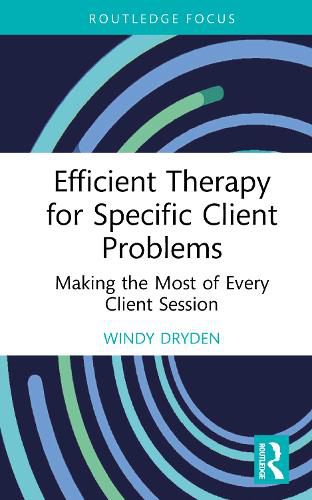Readings Newsletter
Become a Readings Member to make your shopping experience even easier.
Sign in or sign up for free!
You’re not far away from qualifying for FREE standard shipping within Australia
You’ve qualified for FREE standard shipping within Australia
The cart is loading…






Most clients seeking therapy want to be helped with specific emotional problems with which they are struggling, and yet many therapists are reluctant to offer problem-focused therapy.
Efficient Therapy for Specific Client Problems presents the case for such an approach and details how it can be practised efficiently. The book outlines the 26 principles of efficient therapy for specific client problems with clinical examples demonstrating each of the main points. Topics covered include identifying when problem-focused help is appropriate, developing a problem list with the client and setting an agenda for each session, problem assessment, and helping a client find, develop, and implement a solution. The book is highly practical in emphasis with approachable guidelines for helping clients directly with their specific problems and appendices that feature a pre-therapy form, a pre-session form, a session rating form and an end of therapy questionnaire.
Designed to be read by therapists, counsellors, counselling and clinical psychologists, and students of these disciplines, this accessible text will be valuable to readers across different levels of experience.
$9.00 standard shipping within Australia
FREE standard shipping within Australia for orders over $100.00
Express & International shipping calculated at checkout
Most clients seeking therapy want to be helped with specific emotional problems with which they are struggling, and yet many therapists are reluctant to offer problem-focused therapy.
Efficient Therapy for Specific Client Problems presents the case for such an approach and details how it can be practised efficiently. The book outlines the 26 principles of efficient therapy for specific client problems with clinical examples demonstrating each of the main points. Topics covered include identifying when problem-focused help is appropriate, developing a problem list with the client and setting an agenda for each session, problem assessment, and helping a client find, develop, and implement a solution. The book is highly practical in emphasis with approachable guidelines for helping clients directly with their specific problems and appendices that feature a pre-therapy form, a pre-session form, a session rating form and an end of therapy questionnaire.
Designed to be read by therapists, counsellors, counselling and clinical psychologists, and students of these disciplines, this accessible text will be valuable to readers across different levels of experience.